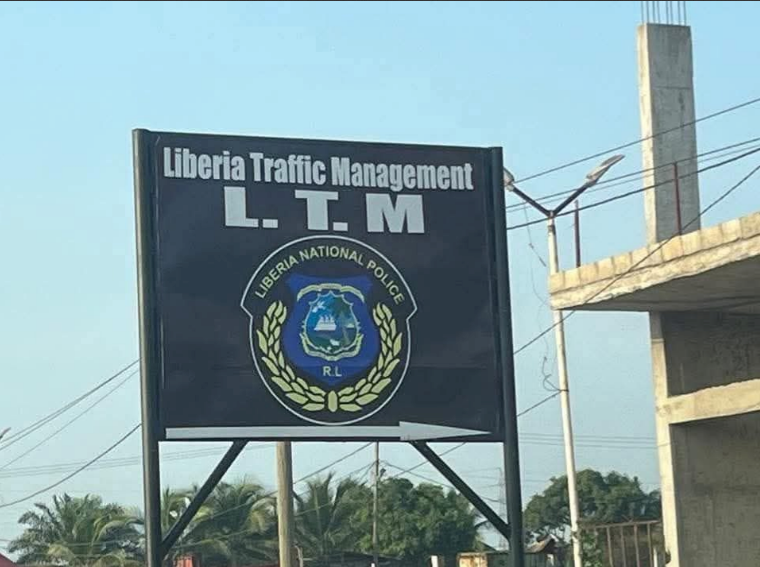One Company, Two Laws: Controversial Concession Deal of LTM

A controversial concession deal involving the Ministry of Transport and the Liberia Traffic Management (LTM) Company has reignited public outrage and triggered a legal and legislative standoff. What began as a proposal to modernize traffic regulation in Liberia has evolved into a full-blown controversy entangling the judiciary, lawmakers, local authorities, and civil society in a prolonged dispute over legality, jurisdiction, and governance. Since its inception in 2018, the concession agreement has faced repeated pushback. The Ministry of Transport established by an Act of the Legislature on August 26, 1987 entered into a proposed partnership with LTM, a private company aiming to manage and operate key traffic regulatory services. The stated goal: to improve efficiency, revenue collection, and overall public safety through a public-private partnership. Instead, the initiative has become mired in legal uncertainty, bureaucratic delays, and mounting public suspicion. Senator Nathaniel McGill recently disclosed that during his tenure as Minister of State under former President George Weah, he encountered two conflicting versions of the LTM contract. These discrepancies, he noted, are inconsistent with Liberian law raising further red flags about the agreement's legitimacy. At the heart of the controversy is a lawsuit filed by LTM against the Ministry of Transport, citing breach of contract and interference in its legally granted responsibilities. The case, now before the Supreme Court, remains unresolved, leaving the fate of the concession and the future of traffic oversight in Liberia in legal limbo. LTM argues that its agreement with the government grants it exclusive rights to certain traffic management functions. The Ministry of Transport and its allies, however, contend that statutory authority over national transportation systems cannot be delegated without due legal process, including potential amendments to the 1987 law that created the Ministry itself. This legal back-and-forth has now drawn in multiple actors across Liberia’s institutional landscape. Each party be it governmental, financial, or private holds a stake in what is shaping up to be a precedent-setting case for future public-private partnerships in the country. The concession model in question involves granting LTM the right to oversee, operate, and maintain various traffic-related services. In return, LTM is expected to invest in infrastructure and technologies while sharing a portion of revenues with the government. Proponents argue that this could improve traffic enforcement, reduce road accidents, and increase revenue collection through digitization and modern systems. However, critics ranging from civil society groups to legal scholars warn that the deal lacks sufficient legal grounding. Concerns center around the Ministry potentially relinquishing statutory duties without parliamentary approval or regulatory alignment. In a country where institutional capacity is still developing, questions about transparency, accountability, and oversight have taken center stage. The deal has sparked a wave of protests from commercial drivers, transport unions, and civil society organizations who fear that privatizing traffic management could result in higher service fees, excessive fines, and reduced public accountability. Their message is clear: traffic enforcement is a public good and should not be outsourced without full transparency and stakeholder engagement. In response to the public outcry, the House of Representatives recently issued a resolution to suspend all operational activities of the Liberia Traffic Management Company pending further investigation. This legislative intervention is seen as both a response to constituent pressure and an acknowledgment of unresolved legal questions surrounding the deal. However, the suspension has prompted fresh concerns about legislative overreach and whether political motives may be clouding the process. While some lawmakers argue that halting LTM’s operations is necessary to protect the public interest, others question whether the move amounts to political posturing that could undermine future investor confidence in Liberia’s concession framework. The current standoff has exposed a legal gray area: Can the Ministry of Transport legally delegate its core responsibilities to a private company without explicit legislative approval? And does the House of Representatives have the constitutional authority to suspend operations of a private company that has signed a government-sanctioned agreement? These questions remain at the heart of both the legal case before the Supreme Court and the political debate in the Legislature. Until clear legal guidance is issued and the terms of the concession are either validated or nullified, the entire traffic regulatory framework in Liberia risks being stalled. The unfolding controversy highlights the broader challenges facing governance and reform efforts in Liberia. While public-private partnerships can be powerful tools for modernization and service delivery, they require clear legal frameworks, stakeholder consultation, and transparent processes. In the absence of these, such partnerships can quickly devolve into contested battlegrounds, as evidenced in the current dispute. The situation also underscores the importance of harmonizing legislative oversight, executive implementation, and judicial review. Liberia’s development goals including infrastructure reform, revenue mobilization, and improved service delivery rely heavily on functional cooperation among these arms of government. As the Supreme Court deliberates and the Legislature considers its next steps, the future of traffic management in Liberia remains uncertain. For now, the Liberia Traffic Management Company has had its operations paused, and the Ministry of Transport is under scrutiny for its role in the deal’s negotiation and execution. For ordinary Liberians drivers, pedestrians, and commuters the debate feels less about legal theory and more about everyday impact. Many are left wondering when, or if, the country will finally see a traffic management system that is efficient, transparent, and legally sound. Until the court delivers its ruling and lawmakers reach a clear consensus, the saga over the LTM concession deal serves as a critical case study in how policy decisions, when poorly executed or inadequately scrutinized, can erode public trust and stall much-needed progress.


